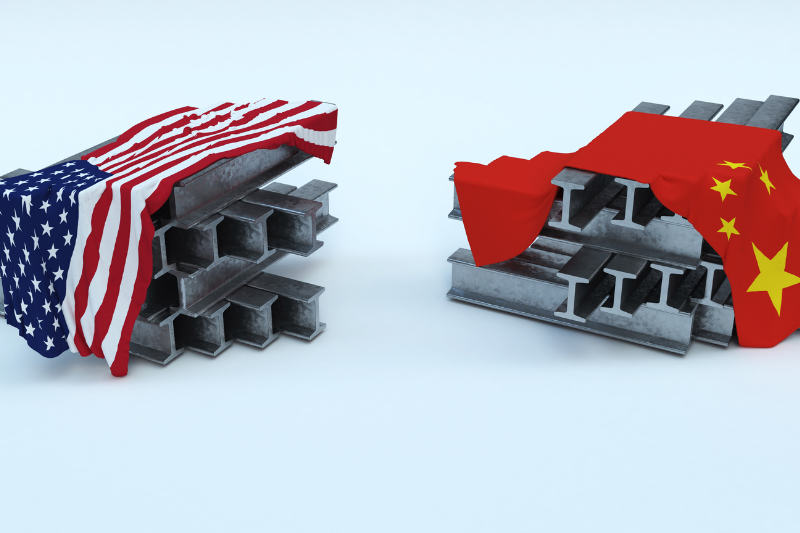
Is the U.S. Falling Short? Analyzing the China’s Rise in AI.
Unveiling China’s Intelligence Revolution: M.S.S. Challenges the C.I.A.
In the clandestine realm of global intelligence, the Ministry of State Security (M.S.S.) of China emerges as a formidable player, deploying cutting-edge technologies and artificial intelligence (A.I.) to rival the United States, setting the stage for a new era of espionage.
The Ministry of State Security, China’s premier intelligence agency, has undergone a dramatic transformation in recent years, shedding its image as an agency relying on embassy gossip. Instead, it has embraced technological advancements, including A.I., to fulfill President Xi Jinping’s vision of positioning China as a global economic and military powerhouse.
A.I. in Espionage: The Chinese Edge
Unlike the Cold War era, China, with its economic prowess and industrial policies, leverages emerging technologies like A.I. to challenge the United States in intelligence gathering and subterfuge. The M.S.S. has not only expanded its recruitment efforts, including recruiting American citizens, but has also secured a larger budget, better training, and advanced technologies.
The Espionage Game: China vs. the U.S.
The competition between the M.S.S. and the Central Intelligence Agency (C.I.A.) mirrors the historic K.G.B.-versus-C.I.A. rivalry. However, the M.S.S. takes advantage of China’s economic boom, using A.I. as a powerful tool. In a significant shift, the U.S. intelligence community, particularly the C.I.A., has doubled its focus and resources on collecting data on Chinese companies, especially those developing A.I., quantum computing, and other advanced technologies.
Technological Espionage: A New Frontier
While the U.S. intelligence community traditionally focused on military capabilities, the landscape has evolved. China’s pursuit of emerging technologies is now considered as crucial as understanding its military strength or political maneuverings. The M.S.S. intensifies intelligence collection on American companies with dual-use technologies, while the C.I.A. hones in on Chinese advancements in A.I. and quantum computing.
Keep Reading
The Ministry of State Security, once overshadowed by the People’s Liberation Army’s intelligence services, now stands as a powerful force. Its mandate, combining the foreign responsibilities of the C.I.A. and the domestic duties of the F.B.I., reflects an authoritarian approach. Led by Minister Chen Wenqing, the M.S.S. is on the offensive, employing social media for messaging and cracking down on perceived threats to the Communist Party.
Espionage in the Digital Age
In a game of technological one-upmanship, the M.S.S. deploys tactics like social media infiltration and cyber operations. Recent cases of Chinese citizens spying for the C.I.A. underscore the agency’s resurgence. While the C.I.A. has increased its scrutiny of Chinese activities, the M.S.S. remains proactive, engaging in aggressive moves abroad, including recruiting foreign politicians and interfering with political processes.
Rise of the M.S.S.: From Gossip to Global Dominance
Established in 1983, the M.S.S. faced internal challenges and competition from the People’s Liberation Army’s intelligence services. Over time, it honed its tradecraft, expanded its recruitment targets, and even ventured into the business sector. The agency’s elevation to a prime player reflects its agility in adapting to global changes.
The M.S.S. strategically recruits talent, often directly from universities, with a focus on technology experts, including hackers. Its emphasis on gaining technological self-reliance aligns with President Xi’s vision for China. The intelligence community’s growing interest in technology is a response to the perceived threat of China being cut off from vital technological know-how.
China’s Technological Ambitions: A Global Concern
China’s aggressive pursuit of cutting-edge technologies raises concerns globally. Beijing’s fear of being cut off from crucial technological advancements is mirrored in its espionage efforts. Analysts suggest that the urgency and intensity of China’s technological espionage have surged significantly, with the M.S.S. at the forefront of these efforts.
While the C.I.A. under President Biden has taken steps to address the China challenge, critics argue that efforts may be falling short. The M.S.S.’s adept use of emerging technologies keeps the U.S. intelligence community on its toes. The need for a nuanced understanding of China’s commercial and technological ambitions is highlighted, as the intelligence community grapples with the evolving landscape.
In conclusion, the rise of the M.S.S. as a technological powerhouse in the intelligence arena reflects China’s ambition to challenge the United States on all fronts. As the espionage game unfolds in the digital age, the use of A.I. and advanced technologies becomes a critical battleground. The M.S.S.’s strategic moves underscore a paradigm shift in global intelligence dynamics.




